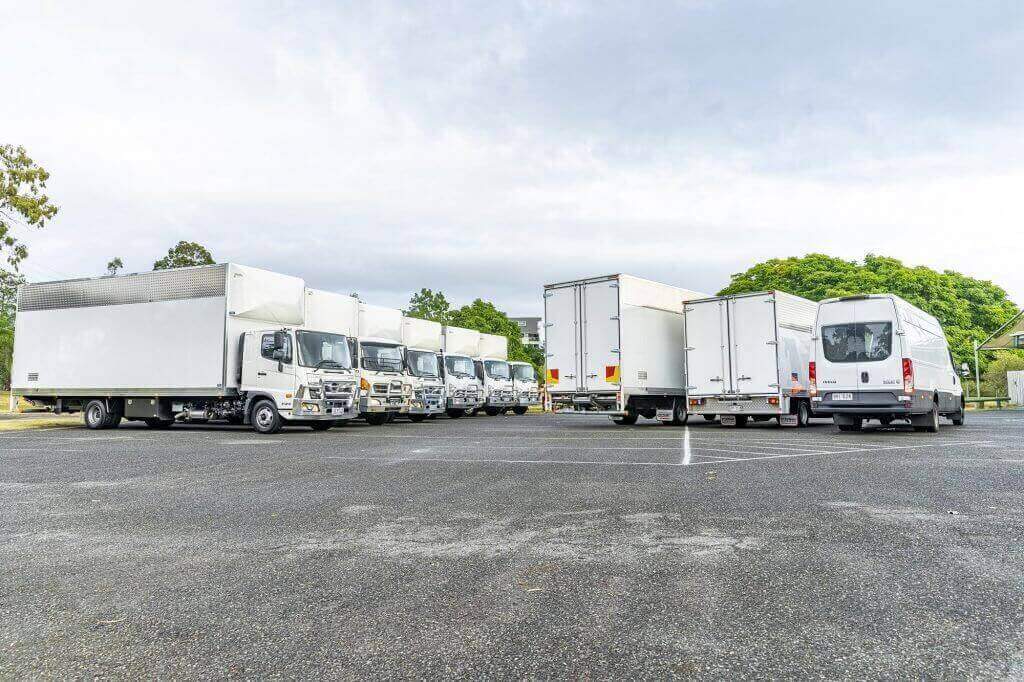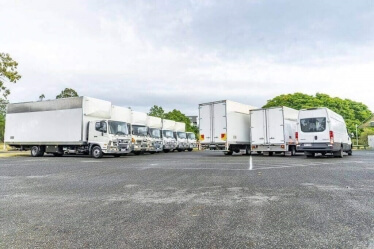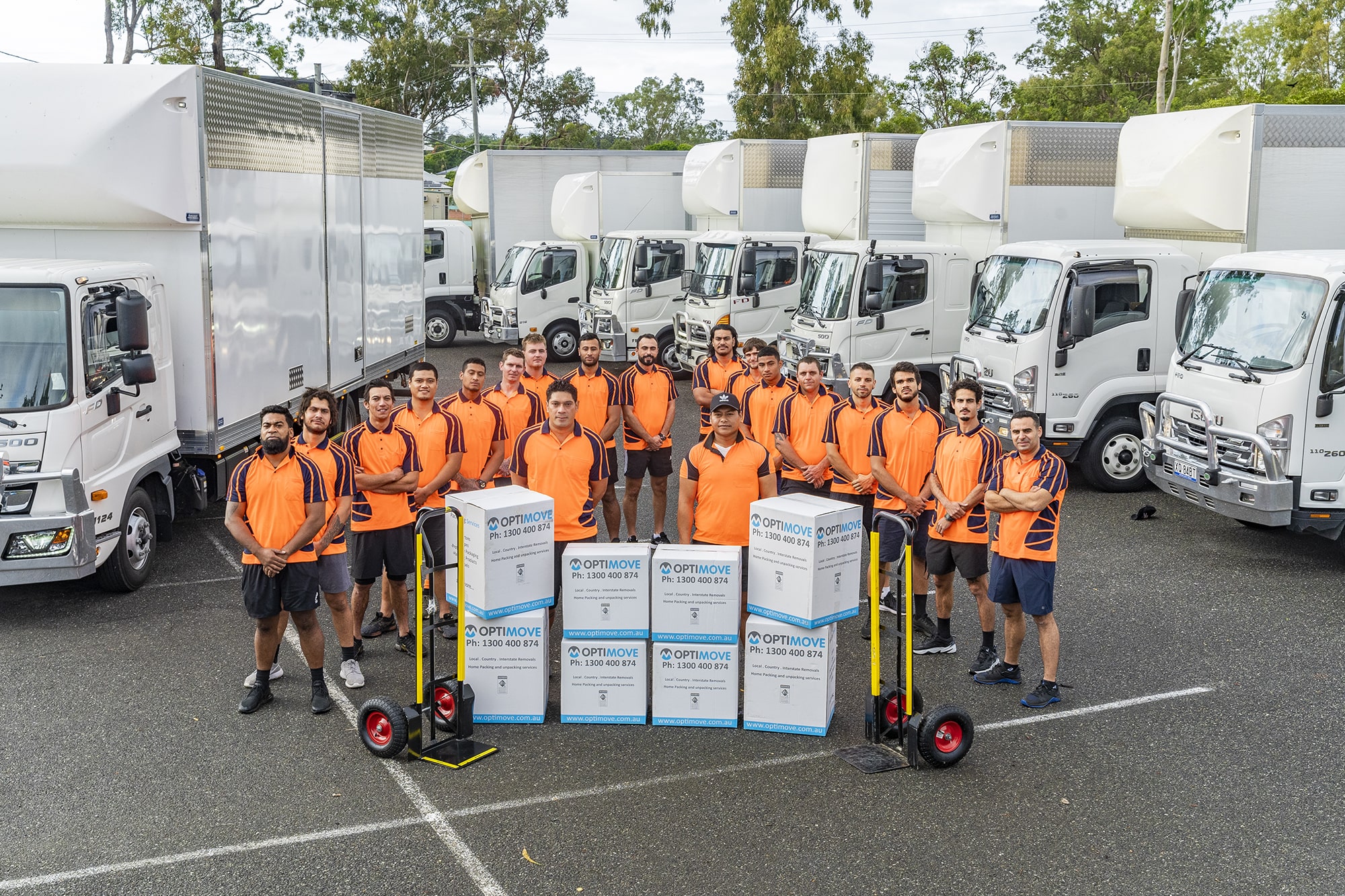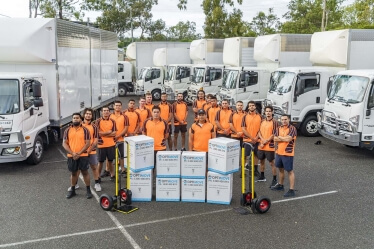Money-Saving Tips to Save You Some Cash During Your Next Move
Relocating may be a time-consuming and expensive ordeal. The cost of relocating rapidly piles up when you include in hiring a moving company and buying packing supplies. While moving might be expensive, you can cut costs with careful preparation and smart choices.
Moving Without Hurting Your Savings account
Moving can be expensive, but with careful planning and smart choices, you can save money without hurting your savings account. There are some things you can do to save on moving. The basic idea is only take with you what you need, or cannot be replaced. It is not worth it to transport items that you can easily buy at your destination.
Even before you planned to move, you have already decided that it would be better financially to transfer to a different location. You can do this without impacting your savings, your bank account, or your savings goal. Consider moving as an expense or as part of an investment in yourself.
Using Your Extra Money or Disposable Income
There are costs that you can easily recover, and some other necessary expenses that may take a while to replenish. Keep the long term costs to a minimum. You would have less debt repayments to think about. If the costs of moving are too expensive, but the opportunity is large, only then should you consider taking from your savings. Otherwise, plan on budgeting a part of your income, for the costs of moving.
Importance of Not Touching Your Savings Accounts
You may have a number of reasons for moving, In the same manner, you can also have different reasons for your savings account. You might have a savings plan, and want to save for your future travel or a purchase, in the near future. Strictly speaking, moving is not an expense for yourself. It is an expense that you need plan ahead to recoup these expenses like any other prudent investment.
Treat Moving as a Short Term Investment
Like any other investment, most advisers would suggest that you do not touch your savings accounts. These are for emergencies, or for a quick cash need that you can replenish almost immediately. Moving is not an expense that you want to use your money from bank accounts.
Use Your Savings for Long Term or Future Expenses
Furthermore, savings accounts are for different allocated or budgeted future expenses. You might have a savings plan or a savings goal. Besides, there would definitely be more expenses when you get to your destination.
The costs of moving should not come from your savings account.
Tips to Save Money when Moving
Here are some money saving tips for your next move:
Plan and Organize Your Move and Save Money:
Making a financial plan is an important first step in relocation preparation. As a result, you’ll better understand how much cash you can put toward the relocation and where you can make cuts. Remember to factor in the cost of hiring a moving company, buying boxes, and switching service providers.
Once you have a budget, research moving companies and compare their services, rates, and reviews. Look for deals or discounts that may be available to you. Try not to add to your credit card debt when moving. Consider asking friends or family for referrals or recommendations.
Declutter and Sell Unwanted Items:
Before packing, go through each room in your home and identify items you no longer need or use. This includes clothes, books, appliances, furniture, and other household items. Consider donating items still in good condition to charity or giving them away to friends and family.
For items you no longer need but are still valuable, consider selling them online through platforms like eBay, Facebook Marketplace, or Craigslist. This can generate extra cash that can be used towards moving expenses.
When pricing items to sell, be realistic and research to ensure you’re getting a fair price. Take clear photos of the items and write detailed descriptions to attract potential buyers.
Compare Moving Quotes:
When comparing quotes, provide each company with the same information about your move, including the distance, the number of items being moved, and any additional services you require, such as packing or storage.
Look for hidden fees or charges not included in the initial quote, such as fuel, stairs, or long carry fees. Be sure to ask about these fees upfront to avoid any surprises on moving days.
Research each company’s reputation and read reviews from previous customers. Look for companies with a track record of providing quality service and reliable customer support.
Don’t Focus on the Price of Movers
Don’t just focus on the price alone. Consider other factors such as the company’s insurance policies, years of experience, and availability. Choose a company that meets your needs and budget while ensuring a smooth, stress-free move.
Choose an Off-Season or Midweek Move:
Choosing an off-season or midweek move is a great way to save on your move. This is because moving companies are more available during these times and may offer lower rates.
Off-season moves typically occur during the fall and winter months, when demand for moving services is lower. Midweek moves take place during the week rather than on weekends. You can save and avoid peak season rates by choosing one of these options.
Use Secondhand or Free Packing Supplies:
One option is to seek out secondhand boxes from local grocery stores, liquor stores, or online marketplaces. Many of these businesses receive regular shipments and are often happy to give away their used boxes for free. Check the boxes for any damage or signs of wear before using them.
Repurpose Household Items for Packing
Another option is to repurpose existing household items as packing materials. For example, you can use towels, blankets, or clothing to wrap up fragile items instead of purchasing bubble wrap. You can also use newspapers, magazines, or shredded paper as cushioning material for packing boxes.
If you do need to purchase new packing materials, be sure to compare prices and shop around. Look for deals or discounts on bulk purchases to save money.
Utilise Friends and Family:
Using friends’ and family’s help is a great way to save during your move. Many people are willing to lend a hand in exchange for a small token of appreciation or a home-cooked meal.
To make the most of your friends and family’s help, list tasks they can assist with, such as packing boxes, loading and unloading items, or cleaning your old home. Be sure to communicate clearly and respectfully with those helping you, and be mindful of their time and availability.
Consider a Moving Out Party
Consider hosting a packing or moving party and providing snacks and drinks as a thank-you gesture. This can also make the process more enjoyable and less stressful. As a moving out party, you can have some refreshments, but impress upon your guests that your spending habits are hampered until after the move.
If you have children or pets, consider enlisting the help of friends or family to watch them during the move. This can help keep them safe and entertained while you focus on the move.
Rent a Truck or Moving Container:
When renting a truck, research different companies and compare rates. Look for deals or discounts on weekday rentals or off-peak seasons. Be prepared to provide the company with information such as the distance of your move, the size of the truck you need, and how long you’ll be renting it.
Research different companies and compare rates if you rent a moving container, such as a PODS or U-Haul container. Be sure to ask about additional fees or charges, such as storage or delivery fees.
Optimise Your Moving Insurance:
Optimising your moving insurance is an important step to protect your belongings during your move while also potentially saving money. There are several ways to optimise your moving insurance:
- Obtain multiple quotes from different insurance providers to compare rates and coverage options.
- Understand your coverage: Carefully review your coverage options and understand what is covered and what is not. Be sure to ask questions if anything needs to be clarified.
- Choose the right coverage: Depending on the value of your belongings, consider purchasing additional coverage, such as full value protection. This will protect your items for their full value rather than just a percentage of it.
- Ask about deductibles: Be sure to ask about any deductibles associated with your coverage. A higher deductible may mean lower premiums but more out-of-pocket expenses in the event of a claim.
- Take inventory: Take inventory of your belongings before the move and record their condition. This will be helpful in the event of a claim.
- Consider self-insuring: If you have valuable items, consider self-insuring rather than purchasing additional moving insurance. This could save you money on insurance premiums.
By optimising your moving insurance, you’ll be able to protect your belongings during your move while also potentially saving money. Research your options and choose the coverage that best fits your needs and budget.
Save on Utility Transfers and Setups:
Saving on utility transfers and setups is a simple yet effective way to save money during your move. Here are some tips to help you save on utility costs:
- Transfer utilities in advance: Be sure to transfer your utilities well in advance of your move. This will ensure that you have uninterrupted service at your new home and can avoid any fees or charges associated with reconnecting service.
- Research utility providers: Take the time to research different utility providers in your area and compare rates. Look for deals or discounts on bundle packages or new customer promotions.
- Bundle services: Consider bundling your services such as internet, cable, and phone to save money on monthly bills. There is always a better deal with bundled services.
- Choose energy-efficient options: When setting up utilities in your new home, choose energy-efficient options such as LED light bulbs or smart thermostats. These options can help you save money on your utility bills over time.
- Negotiate rates: If you’re unhappy with your current utility rates, consider negotiating with your provider. You may score a better deal or lower rate by simply asking.
You can save money on utility transfers and setups by taking these steps. Plan and research your options to find the best rates and deals.
Do-It-Yourself Cleaning:
To clean your home efficiently, start by decluttering and removing any items you no longer need or use. This will help you reduce the cleaning needed and make the process easier.
Purchase cleaning supplies such as all-purpose cleaners, glass cleaners, and disinfectants in advance. You can find these supplies at many grocery stores and home improvement stores.
Cleaning Priorities
When cleaning, focus on high-traffic areas such as bathrooms, kitchens, and living spaces. Be sure to dust, vacuum, and mop all surfaces thoroughly. Pay attention to details such as baseboards, light fixtures, and windows.
If you don’t have the time or energy to do the cleaning yourself, consider enlisting the help of friends or family. Be sure to communicate clearly and respectfully with those helping you, and be mindful of their time and availability.
Conclusion
Moving can be a stressful and expensive experience. However, by following the tips outlined in this article, you’ll be able to save money while ensuring your move goes smoothly. From renting a truck or container to optimising moving insurance and cleaning your home, there are many ways to save money on your move.
To ensure your move is successful and stress-free, consider hiring professional movers such as Optimove for the best results. With their knowledge and expertise, you’ll be able to enjoy a hassle-free move with minimal costs.





































